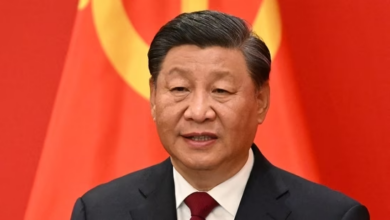The world’s first children’s malaria vaccination program is launched in Cameroon
As the doses are distributed across Africa, Cameroon will be the first nation to regularly provide the new malaria vaccine to children.

Officials praised the campaign, which is set to begin on Monday, as a significant step in the decades-long fight to stop the malaria epidemic caused by mosquitoes on the continent, which is responsible for 95% of malaria fatalities worldwide.
The immunization will prevent fatalities. Families and the nation’s healthcare system would benefit greatly from it, according to Aurelia Nguyen, chief program officer of the Gavi Vaccines Alliance, which is assisting Cameroon in obtaining the injections.
The country in Central Africa intends to immunize around 250,000 kids this year and the next year. Gavi said that it is collaborating with twenty more African nations to assist them in obtaining the vaccine, with the aim of immunizing over six million children by the year 2025. Approximately 250 million instances of the parasitic illness, especially in young children, are reported in Africa each year. Of these cases, 600,000 result in death.
Mosquirix, the first of two newly licensed malaria vaccines, will be used in Cameroon. Two years ago, the World Health Organization approved the vaccine, noting that despite its flaws, its usage would significantly lower hospital admissions and serious illnesses. The vaccine made by GlaxoSmithKline is only around 30% effective, needs four doses, and after many months, the protection starts to wane. Three nations conducted trial programs using the vaccine after it was tested in Africa.
Though some experts think a second malaria vaccine produced by Oxford University and authorized by WHO in October would be a more workable answer, GSK has said that it can only manufacture around 15 million doses of Mosquirix annually. The vaccine is less expensive, needs three doses, and, according to India’s Serum Institute, may produce up to 200 million doses annually.
According to Nguyen of Gavi, they were hoping that enough Oxford vaccinations would be ready to start immunizing individuals later this year. Since neither vaccination can halt the spread of malaria, additional measures like bed nets and insecticidal spraying will remain essential. The malaria parasite may produce symptoms including fever, headaches, and chills and is mostly transmitted to humans by infected mosquitoes.







